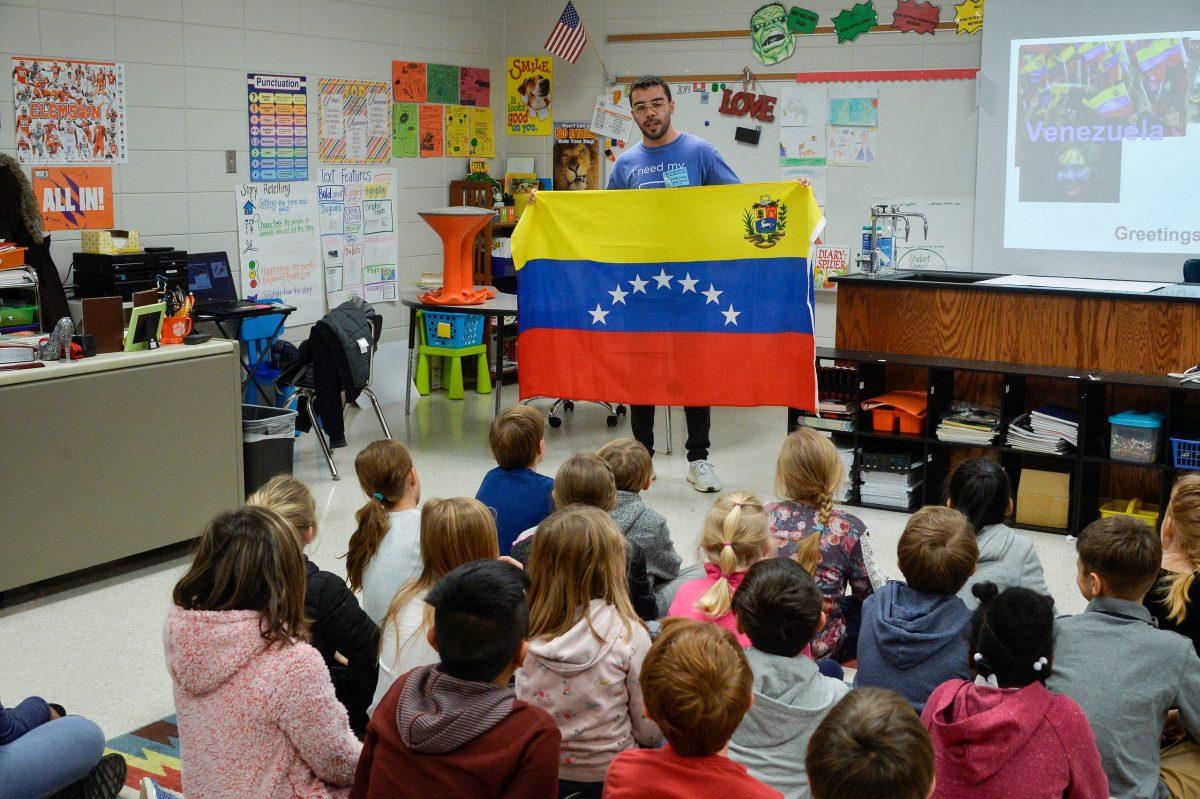International student Eduardo Castillo discusses crisis in home country
Eduardo Castillo ’19 is a computer science and math major who came to Wofford after completing his high school education and IB courses in Venezuela. He was raised in Maracaibo by his parents who have since fled to Orlando, FL with pending cases for political asylum. His siblings are currently pursuing their master’s in engineering in Canada and Castillo himself is West Coast bound after graduation with a job at “Slack,” a software company headquartered in San Francisco, CA. However, according to Castillo, these successes have not gone untouched by the current national crisis that is taking place in their home country.
Since the election of Nicolás Maduro in 2018, Venezuela has suffered a national socioeconomic and political crisis. Hyperinflation, food and water shortages and power outages have limited the opportunities of the citizens of the country, disabling them from meeting their accustomed standards of living, work or pursue their education.
In Jan. of 2017, the reelection of Nicolás Maduro was deemed invalid by the Venezuelan National Assembly and according to the country’s constitution, resulted in the placement of National Assembly President Juan Guaidó in control of the federal government.
Castillo says, “Maduro is alone, but he has the military control. In the past couple of years Venezuela has been arresting everyone that is in opposition to the government. The only reason Juan Guaidó is not dead is because of his international support. If they kill Guaidó, and the U.S. truly recognizes him as president, then they will have to do something.”
Despite the tumult that is currently plaguing the country, Castillo believes that an end is in sight because of the lack of international support that Maduro has, as well as the weakening of his military support. Currently, Maduro has the support of the Venezuelan military because he pays them well, but the money is running out, to which Castillo says, “they will have to ask themselves at what cost is loyalty; Maduro is suffocating at this point and the question is how much longer is it going to take.”
Aside from the political happenings of the country, Castillo also discussed the day-to-day lives of the Venezuelans who are still in country. The city that he is from averages a year-round temperature of 80-100 degrees, and with no electricity and no air-conditioning – Castillo said that his grandparents and friends from home have described the heat as “unbearable” and “miserable.”
Another daily struggle for the people of Venezuela, according to Castillo, is securing food. Because of the country’s heavy reliance on imports, the people have been left with, what Castillo has described as, “literally eating trash.”
In regard to a former classmate from high school Castillo said, “During the whole time, with what’s happened, I have always had a single point of comparison because my best friend from high school and I have stayed in contact. But, the difference between us is that I pursued a life abroad and he did not. He recently graduated with a degree in chemical engineering, but he has no idea what he is going to do. There is absolutely nothing he can do, he’s just figuring out how he is living life, asking where he is going to get food.”
Venezuelan college students have had their classes




























